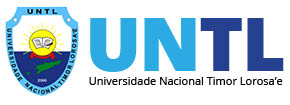Please use this identifier to cite or link to this item:
http://repositorio.untl.edu.tl/handle/123456789/94| Title: | The views of university professors of East Timor about entrepreneurship |
| Authors: | Rodrigues, Cristina Maria Santos Vieira, Filipa Dionísio Xavier, Tomas Silva, Dorotéa |
| Keywords: | Entrepreneurship University professors Attitudes Survey East Timor |
| Issue date: | Sep-2014 |
| Publisher: | Academic Conferences and Publishing International |
| Abstract: | Entrepreneurship has been recognized as a source of sustaining basis in fostering innovation, creating opportunities, local sustainability and socio-economic development of a country, since is a transforming process from an innovative idea to an enterprise. Entrepreneurship has been argued as the most effective economic power in the global economics and social history. The Strategic Plan for Development of East Timor from 2011 to 2030 reports that since 2007 only 9% of the population had economic conditions to leave the so-called “poverty line” and that 41% of East Timorese are still classified as poor. Given this diagnosis, the government of East Timor defined the private investment in Small and Medium Enterprises (SMEs) as one of the four pillars of the economic framework by 2020. To ensure the growth of the private sector in rural and urban areas, government established a development program with several initiatives such as legislative changes, creation of financial support, and faster process enterprise creation. Being private sector a social priority, and given the limitations of existing employment in East Timor, it is necessary to recognize the individual attitude of entrepreneurship and promote this new dynamic of job creation. Authors believe that universities, especially the state university, the East Timor National University (National University of Timor Lorosa'e) should assume a leadership role in promoting entrepreneurship among its students. For East Timor, it is critical to highlight the mission of universities and professors in their role of education and preparation of young people, providing them with an entrepreneurial attitude that allows them to succeed in creating their own employment. This is even more important because there is no formal teaching entrepreneurship at academic level in East Timor. The paper presents results from an ongoing research that aims to contribute to the discussion of the theme of entrepreneurship in East Timor. The survey EmpreendeTIMOR: UNIVPROF intends to study the perception that East Timor academics have in relation to entrepreneurship. Based on a sample of 123 Timorese university professors, from five Timorese universities, the survey analyze how professors perceive entrepreneurs and entrepreneurship, what is their risk predisposition, how they perceive the skills and competences of their students, and how they perceive the role of the University and its professors in promoting entrepreneurship. Results suggest a good image of entrepreneurship and entrepreneurs but require further analysis since professors recorded contradictory results in two negative statements. Professors present a low risk predisposition. In relation to their students’ skills and capacities, professors reveal a high confidence in the abilities and skills of their students to be successful in their own business and in their technical or financial preparation. Regarding the role of universities and its professors in promoting entrepreneurship, the professors expressively recognize its importance and relevance, and agree with a more proactive role in promoting entrepreneurship. |
| URI: | http://repositorio.untl.edu.tl/handle/123456789/94 |
| Appears in Collections: | Trabalhos sobre Timor |
Files in This Item:
| File | Description | Size | Format | |
|---|---|---|---|---|
| Paper_Cristina Rodrigues_Filipa Vieira_Tomas Xavier_ Dorotea Silva_revised.pdf | Documento Principal | 480.87 kB | Adobe PDF | View/Open |
Items in DSpace are protected by copyright, with all rights reserved, unless otherwise indicated.










